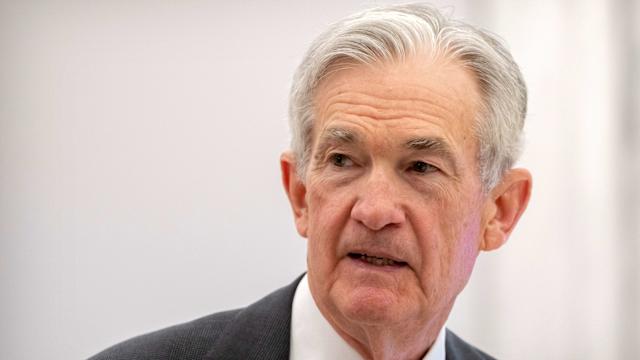Fed gets fresh legal headache with lawsuit seeking to make FOMC rate meetings public

The Federal Reserve got a new legal headache Thursday when a money manager sued Chair Jerome Powell and other central bank policymakers in a Washington, D.C., federal court. The lawsuit alleges the Fed is violating a 1976 federal law by keeping its monetary policy meetings behind closed doors.
Azoria Capital's lawsuit asks the court to issue a temporary restraining order compelling the Fed's Federal Open Market Committee (FOMC) to open its deliberations to the public starting Tuesday and Wednesday, when central bank policymakers gather in Washington to decide on their next interest rate move.
This comes as the Fed is under pressure on several fronts by President Trump, highlighted by an unusual presidential visit to the central bank for a tour of the $2.5 billion refurbishment of its National Mall buildings. Trump and other administration officials have criticized the project for its cost overruns.
Azoria Capital, the money manager bringing the new lawsuit against Powell and other members of the FOMC, is led by CEO James Fishback, who is close to the Trump administration and served as an adviser to the Department of Government Efficiency (DOGE).
Last year, Fishback used Trump's Mar-a-Lago Club as the setting to announce an anti-DEI exchange-traded fund called the Azoria 500 Meritocracy ETF (SPXM), which began trading this month on the New York Stock Exchange.
Azoria argues in its suit that "by operating beyond public scrutiny, the FOMC is deliberately undermining the public accountability envisioned by Congress," and that if a firm such as Azoria does not have real-time access to FOMC deliberations, it "cannot fully consider and protect itself against Federal Reserve policy shifts that can create volatility."
Azoria also states in its suit that it "is deeply concerned that the FOMC, under Chair Jerome Powell, is maintaining high interest rates to undermine President Donald J. Trump and his economic agenda, to the detriment of American citizens and the American economy" and that the FOMC's current policy stance "appears politically motivated."
Fishback made the administration aware of the suit before it was filed, according to a person familiar with the matter.
The FOMC has not changed interest rates since Trump took office, as many policymakers argue that more time is needed to assess how Trump's trade policies will affect inflation. Trump has repeatedly hammered Powell and the Fed for this view, arguing that rates should be three percentage points lower.
繼續閱讀Investors don't expect the Fed to change rates at the meeting on July 29-30, although two Fed governors have said they could support a cut.
Read more: What experts say about the possibility of additional rate cuts
The Fed's current policy stance, according to Azoria's suit, "raises serious questions about whether politics, not economics, are driving monetary policy. These questions emphasize the need for transparency from the FOMC."
The law in question cited by Azoria in its suit is the Government in the Sunshine Act of 1976, passed after President Richard Nixon's Watergate scandal roiled Washington and led to calls for increased transparency in the US government.
The act requires federal agencies to keep their meetings open to the public. But it also allows for private meetings in cases covered as exemptions, including when the release of that information could be used in financial speculation.
The Fed has cited that exemption in justifying why it holds closed meetings when discussing monetary policy.
But Azoria says "not all FOMC deliberations inherently trigger financial speculation" and that the law states that to claim one of these exemptions, the agency must vote to invoke it and then, within one day, publish an explanation of why it made that decision.
Azoria said the FOMC has "brazenly flouted this mandate" for five decades, holding nothing but closed meetings since 1977.
"The FOMC’s decades-long policy of blanket secrecy is unlawful."
Alexis Keenan contributed to this article.
Click here for in-depth analysis of the latest stock market news and events moving stock prices
Read the latest financial and business news from Yahoo Finance













